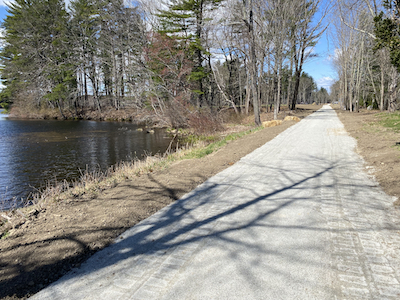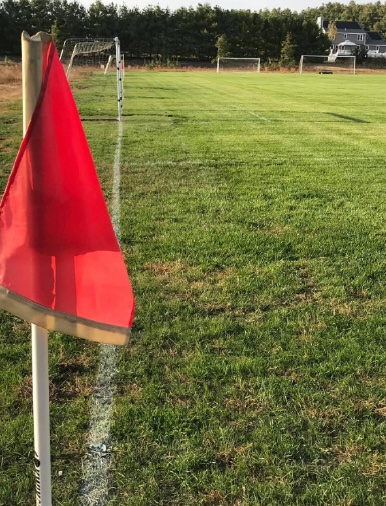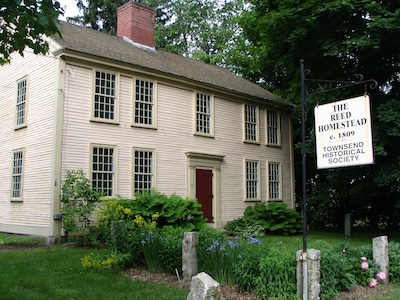Community Preservation Act (CPA) in Townsend
Benefits (and Costs)
Vote November 5, 2024 to make your choice!
What is the CPA?
The CPA is an act that helps communities preserve open space, historic sites, develop outdoor recreational facilities,
support youth sports fields, maintain playgrounds, support outdoor recreation, and support affordable housing. Like an employer
retirement account, you pay some tax money in and the state matches a certain percentage.
What could the Townsend community do with the money?
The town of Townsend alone, through a local committee, not the state, chooses how to spend the money. As long as the funding
helps to improve the town and what is offers for for open space historic sites, outdoor recreational facilities, or housing a
project would be eligible. Once approved by the committee, all proposals must be passed by town meeting.

The CPA is critically needed to allow the rail trail to continue into West Townsend. In building the trail to date,
Squannacook Greenways has used all the
money from many years of fundraising for the 20% match needed for the MassTrails grant. Without the CPA, further construction
will either be greatly slowed or stopped altogether.
What are some example projects that could receive funding?
- Expansion of the rail trail into West Townsend
- Support preservation of historic properties that bring in visitors that help support businesses
- Enhance sports fields
- Renovate playgrounds
- Improve hiking trail signage
- Affordable housing, and More
What exactly is being proposed?
The petition supports a one percent surcharge on you property tax. There are exceptions based on income.
| Category |
Status |
| First $100,000 of property value for everyone |
Exempt |
| Aged 60 and over making less than 100% of the median income ($105,920 for a family of two) |
Exempt |
| Any age and make less than 80% of the median income ($84,736 for a family of two) |
Exempt |

The CPA is could be used to improve youth sports fields.
What is the amount per household each year if not exempt?
If your income is higher, and your house is valued at $400,000, you would subtract $100,000. Then the tax rate 14.41 (presently) per $1,000 would be applied to $300,000.
You would pay $43.23 annually. The formula is:
$300,000 * .01441 * 0.01 = $43.23
| Home Value |
Basis for Amount |
Rate |
Amount |
| $400,000 | $300,000 | .01441 | $45.23 |
| $500,000 | $400,000 | .01441 | $57.64 |
| $600,000 | $500,000 | .01441 | $86.46 |

The CPA is could be used to support preservation of historic properties,
that in turn bring in visitors that help support businesses.
FAQ
How much money can we expect to get as a town annually?
For comparison, the town of Pepperell passed the CPA with exactly the same exemptions and rate as this proposal. Pepperell also has a similar median income of Townsend.
Townsend has about 80% of the population of Pepperell. Based on Townsend population and properties, we expect the amount raised each year will be $190,000.
Is that enough to make an impact?
Absolutely!
Many grants require a local match of about 20%. If all the CPA money was matched in this way, this money could bring almost a million dollars per year into Townsend. Currently a small group of volunteers are raising these funds. Together we can accomplish much more.
Improvements to existing recreational locations and venues, and additional opportunities, makes Townsend more attractive to those living, working, or visiting our community.
How will Townsend decide?
This will be decided by a majority vote at the Nov. 5, 2024 federal election.
What percentage does the state match?
It depends, on among other things, the number of real estate transactions. In recent years, the match rate has varied from 20 to 45 percent.
What happens to this match money if we vote no?
We get nothing - all matching funds go to towns that have passed the CPA.
How does someone apply for the exemption?
A person needs to fill out the CP-4 form each year and turn it into the assessors office in Memorial Hall. You will be able to get it
from the assessors office at Memorial Hall, or download it online.
It must be filed with the assessors office on or before April 1, or 3 months after actual (not preliminary) tax bills are
mailed for fiscal year if later.
Can CPA money be used for operations/maintenance/ongoing costs?
No, the law does not allow that. Typically town council will review CPA requests to make sure they are enhancements, not on-going costs.
Is there any requirement on how money is spent between the categories of 1) open-space and recreation, 2) histo
Each year, at least 10% of CPA money must be allocated to 1) open space, 2) historic preservation, and 3) affordable housing. The other 70%
can be used as the community sees fit. If not all that 10% is spent in one category, it is rolled over. Affordable house is often rolled over
to build up enough money for a useful project.
Does the Selectboard have to approve projects recommended by the local Community Preservation Committee?
No, all project are voted on directly at town meeting with a simple majority vote needed to pass.
What buildings can qualify for historic preservation CPA money?
Any building that is on the state registry of historic places, or the Historic Commission/Historic District Commission deems is historic.
Can a private homeowner of an historic building get CPA money?
Yes, but the homeowner will need to have or get an historic preservation easement.


